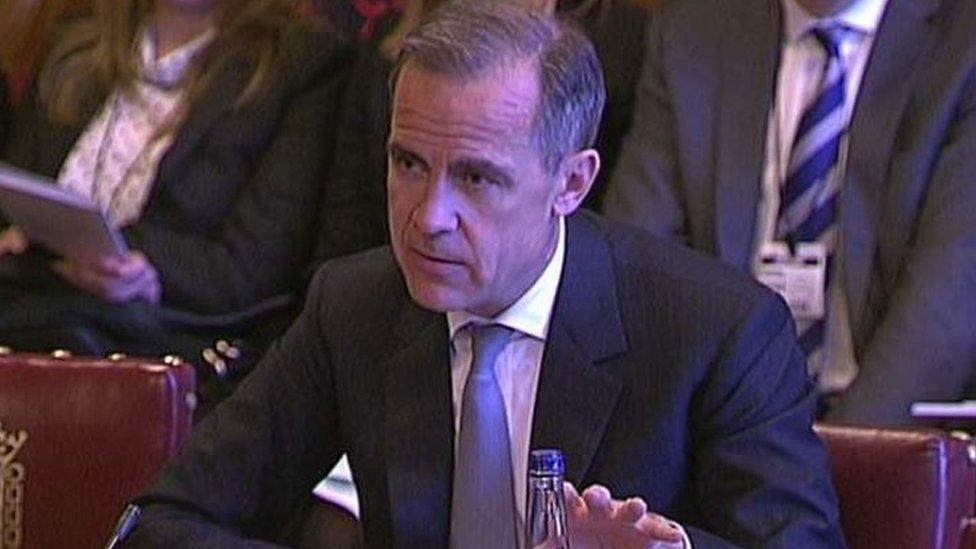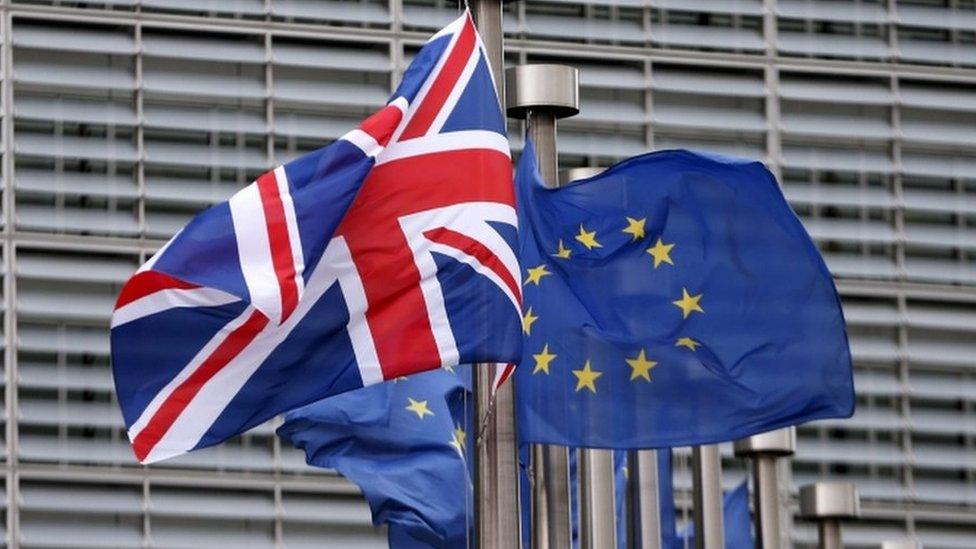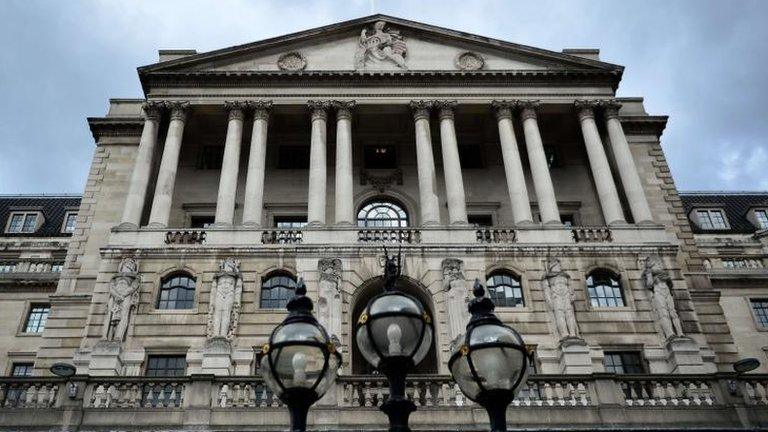UK Bank governor Carney says is 'duty' to speak of Brexit risks
- Published

It is the Bank's duty to talk about EU referendum risks, says Bank of England governor Mark Carney, dismissing accusations the Bank is too political.
"Assessing and reporting major risks does not mean becoming involved in politics; rather it would be political to suppress important judgments," he told a House of Lords committee.
Mr Carney said the vote was the biggest domestic risk to the UK's financial stability.
He added that uncertainty was already hitting the growth outlook.
The referendum takes place on 23 June.
The governor said that while the Bank of England had not made "and will not make" any overall assessment of the economics of the UK's EU membership, assessing the implications were necessary for it to do its job - maintaining monetary and financial stability.
"As with the Scottish Referendum, we will communicate as much as is prudent about those plans in advance of any risk materialising and as comprehensively as possible once risks have dissipated," he added.
'Reinforcing vulnerabilities'
The governor also reiterated he saw "signs of growing uncertainty about the UK's macroeconomic outlook related to the referendum".
There is the possibility that a vote to leave the EU would "reinforce existing vulnerabilities" in the UK economy, including a risk around the UK's trade deficit, he added.
"I think it's safe to say that it [the UK current account deficit] is running at a rate around 5%... and that is remarkably high for a large advanced economy... The risk around the challenge... is that the financing terms change on that current account. Increased cost to the economy - [a] consequence of that is a sharp slowing of the economy."
'Softening'
Mr Carney also refused to comment in detail on Monday's Treasury report which warned that the UK economy could be 6% smaller by 2010 if it left the EU, but said the report's "broad approach, to me, makes sense".
He said a vote to Leave "might result in an extended period of uncertainty about the economic outlook" which would be likely to affect demand in the short term and could affect the supply side economy.
Mr Carney's appearance in front of the committee comes just days after the Bank of England warned the EU referendum could hurt growth in the first half of this year.
The Bank warned uncertainty over the EU referendum could cause "some softening" in growth in the first half of 2016.
It also said sterling had also been affected by the uncertainty ahead of the vote.
- Published29 March 2016

- Published14 April 2016
